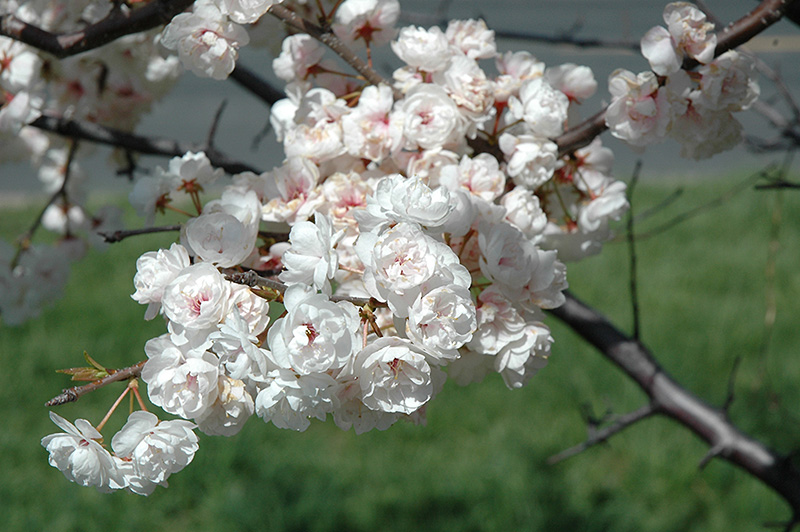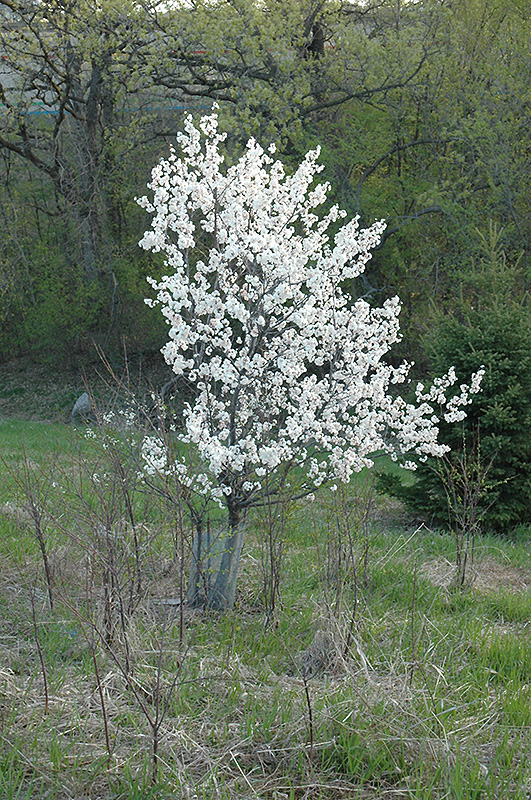Height: 15 feet
Spread: 10 feet
Sunlight:
![]()
Hardiness Zone: 3
Description:
A compact front yard accent tree smothered in double white flowers in early spring; a sterile variety that produces no fruit; attractive glossy black bark, upright in habit, very ornamental and hardy; needs full sun and well-drained soil
Ornamental Features
Princess Kay Plum is blanketed in stunning clusters of fragrant double white flowers along the branches in early spring before the leaves. It has dark green deciduous foliage. The pointy leaves turn an outstanding yellow in the fall. The smooth black bark adds an interesting dimension to the landscape.
Landscape Attributes
Princess Kay Plum is a deciduous tree with an upright spreading habit of growth. Its average texture blends into the landscape, but can be balanced by one or two finer or coarser trees or shrubs for an effective composition.
This tree will require occasional maintenance and upkeep, and is best pruned in late winter once the threat of extreme cold has passed. It is a good choice for attracting birds to your yard. Gardeners should be aware of the following characteristic(s) that may warrant special consideration;
- Disease
Princess Kay Plum is recommended for the following landscape applications;
- Accent
Planting & Growing
Princess Kay Plum will grow to be about 15 feet tall at maturity, with a spread of 10 feet. It has a low canopy with a typical clearance of 3 feet from the ground, and is suitable for planting under power lines. It grows at a medium rate, and under ideal conditions can be expected to live for approximately 30 years.
This tree should only be grown in full sunlight. It does best in average to evenly moist conditions, but will not tolerate standing water. It is not particular as to soil type or pH. It is highly tolerant of urban pollution and will even thrive in inner city environments. This is a selection of a native North American species.


